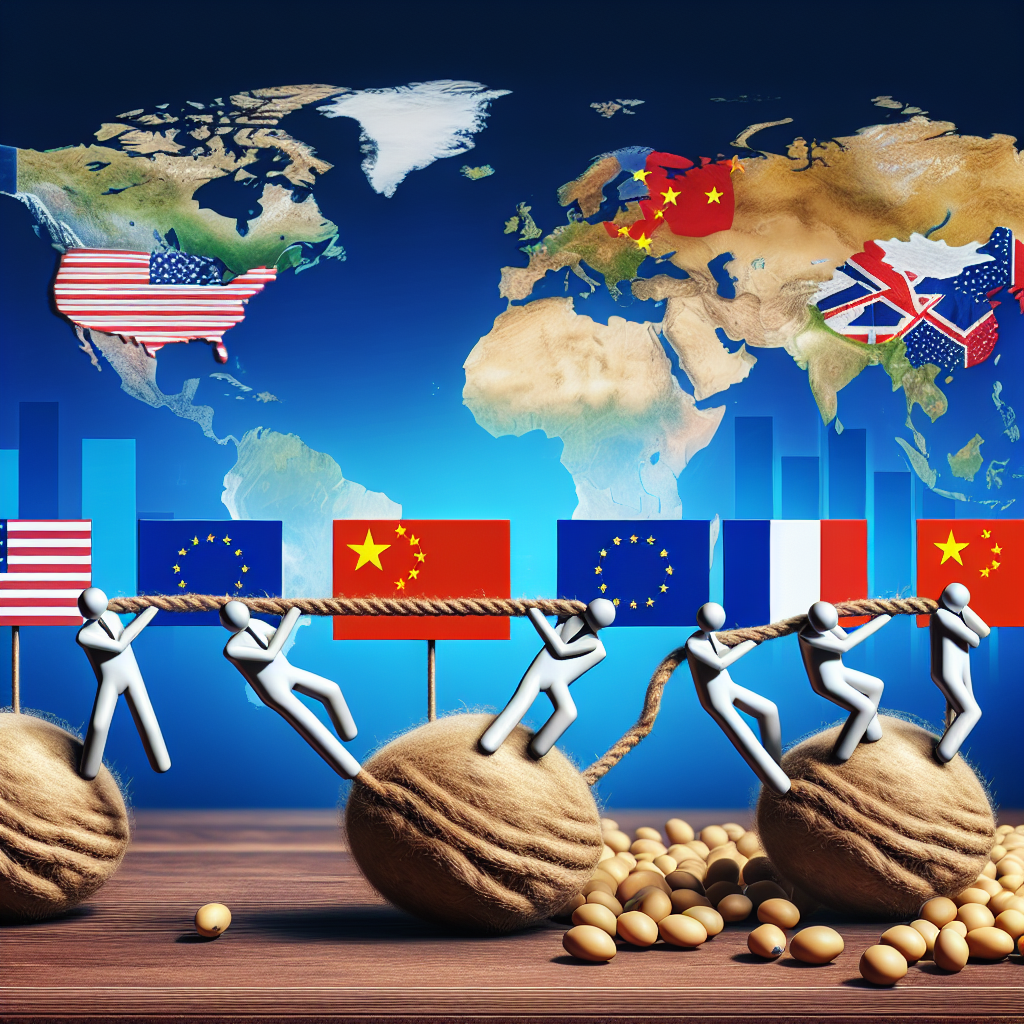Soybeans: The Hidden Leverage of China and the EU in Trade Disputes with the US?
Soybeans: The Hidden Leverage of China and the EU in Trade Disputes with the US
Introduction
Soybeans have emerged as a strategic tool in the complex web of international trade disputes, particularly between the United States, China, and the European Union. This agricultural commodity, often overlooked, plays a pivotal role in the economic negotiations and retaliatory measures among these global powers.
The Strategic Importance of Soybeans
Soybeans are not just a staple in global agriculture but also a significant economic lever due to their extensive use in various industries.
- Key component in animal feed, essential for livestock industries.
- Vital for producing soy oil, a major cooking oil worldwide.
- Integral in biofuel production, contributing to energy sectors.
China’s Leverage
China, as the world’s largest importer of soybeans, wields considerable influence over the market.
- China’s demand impacts global soybean prices and trade flows.
- In trade disputes, China can impose tariffs or shift purchases to other countries, affecting US farmers.
- China’s strategic stockpiling can buffer against supply disruptions, enhancing its negotiating power.
The EU’s Position
The European Union, while not as dominant as China, still holds significant sway in the soybean market.
- The EU’s regulatory standards can influence global soybean trade practices.
- As a major importer, the EU can diversify its sources, impacting US exports.
- Trade policies and agreements with other nations can shift the balance of soybean trade.
Implications for the US
The United States, a leading soybean producer, faces challenges and opportunities in this dynamic trade environment.
- US farmers are vulnerable to shifts in international demand and tariffs.
- Trade disputes can lead to market volatility and economic uncertainty.
- Opportunities exist to explore new markets and strengthen domestic industries.
Conclusion
Soybeans, often seen merely as an agricultural product, have become a critical element in international trade strategies. Both China and the EU utilize their positions in the soybean market to exert influence in trade negotiations with the US. Understanding the strategic importance of soybeans can provide insights into the broader economic and political dynamics at play in global trade disputes.














